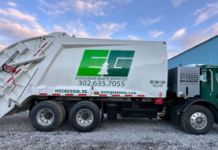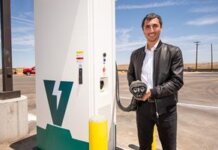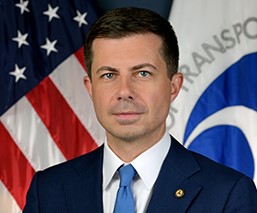The Biden-Harris administration has awarded $623 million in grants to help build out an electric vehicle charging network across the U.S. This is a critical part of the administration’s goal of building out a convenient, affordable, reliable and made-in-America national network of EV chargers, including at least 500,000 publicly available chargers by 2030.
During the Biden administration, EV sales have more than quadrupled, the number of publicly available charging ports has grown by nearly 70% and more than 4 million EVs are now on the road. Private companies have announced more than $155 billion in the EV and battery supply chain under the administration.
These grants are made possible by the Bipartisan Infrastructure Law’s $2.5 billion Charging and Fueling Infrastructure (CFI) Discretionary Grant Program, a competitive funding program, and will fund 47 EV charging and alternative-fueling infrastructure projects in 22 states and Puerto Rico, including construction of approximately 7,500 EV charging ports.
The CFI program complements the $5 billion National Electric Vehicle Infrastructure (NEVI) formula program to build the “backbone” of high-speed EV chargers along U.S. highways. Thanks to the NEVI program, new charging stations in Ohio and New York have opened, and states like Pennsylvania and Maine have broken ground.
“America led the arrival of the automotive era, and now we have a chance to lead the world in the EV revolution — securing jobs, savings and benefits for Americans in the process,” says U.S. Transportation Secretary Pete Buttigieg. “This funding will help ensure that EV chargers are accessible, reliable and convenient for American drivers, while creating jobs in charger manufacturing, installation and maintenance for American workers.”
As part of this announcement, the Federal Highway Administration is awarding $311 million to 36 “community” projects, including two Native American tribes in Alaska and Arizona. These projects invest in EV charging and hydrogen fueling infrastructure in urban and rural communities, including at convenient and high-use locations including schools, parks, libraries and multi-family housing.
Another $312 million in funding will go to 11 “corridor” recipients whose projects are located along roadways designated as Alternative Fuel Corridors. These projects will fill gaps in the core national charging and alternative-fueling network.
The CFI Program advances Biden’s Justice40 Initiative, which set a goal that 40% of the overall benefits of federal investments flow to disadvantaged communities that are marginalized by underinvestment and overburdened by pollution. More than 70% of the CFI funding announced will support project sites in disadvantaged communities.
Project selections in this round of grants include:
- $10 million to the New Jersey Department of Environmental Protection to build EV charging stations for residents in multi-family housing in disadvantaged communities and rural areas. The project also will focus on areas near transit stations to encourage the use of shared transportation services such as electric carshare and rideshare options.
- $15 million to the Maryland Clean Energy Center to build 87 electric vehicle charging stations in urban, suburban and low- and moderate-income communities across the state. Proposed sites include Coppin State University, an HBCU (Historically Black Colleges and Universities) in Baltimore and 34 disadvantaged communities with multi-family housing. The project also includes workforce development programs that offer services to help train, place and retain people in good-paying jobs or registered apprenticeships.
- $70 million to the North Central Texas Council of Governments to build up to five hydrogen fueling stations for medium- and heavy-duty freight trucks in Dallas-Fort Worth, Houston, Austin and San Antonio. The project will help create a hydrogen corridor from Southern California to Texas.
- $15 million to the County of Contra Costa in California to build a total of 52 fast chargers and 60 Level 2 chargers at 15 branch locations of the county’s library system.
- $15 million to Energy Northwest, a joint operating agency in Washington state, to install 40 fast chargers and 12 Level 2 chargers across western Washington state and northern Oregon. The project will provide EV access to largely rural and disadvantaged communities, including on indigenous tribal lands.
- $12 million to the city of Mesa, Ariz. to build 48 EV chargers for a variety of vehicle sizes, charging docks and solar canopies to support electricity generation at the stations.
- $1.4 million to the Chilkoot Indian Association, an Alaska native tribe, to build an EV charging station in Haines, a rural and disadvantaged community where there are no publicly available EV charging stations.
FHWA is working closely with the Joint Office of Energy and Transportation, providing technical assistance on planning and implementation of a national network of EV chargers and zero-emission fueling infrastructure.
For a full list of grant recipients, visit https://www.fhwa.dot.gov/environment/cfi/grant_recipients/




